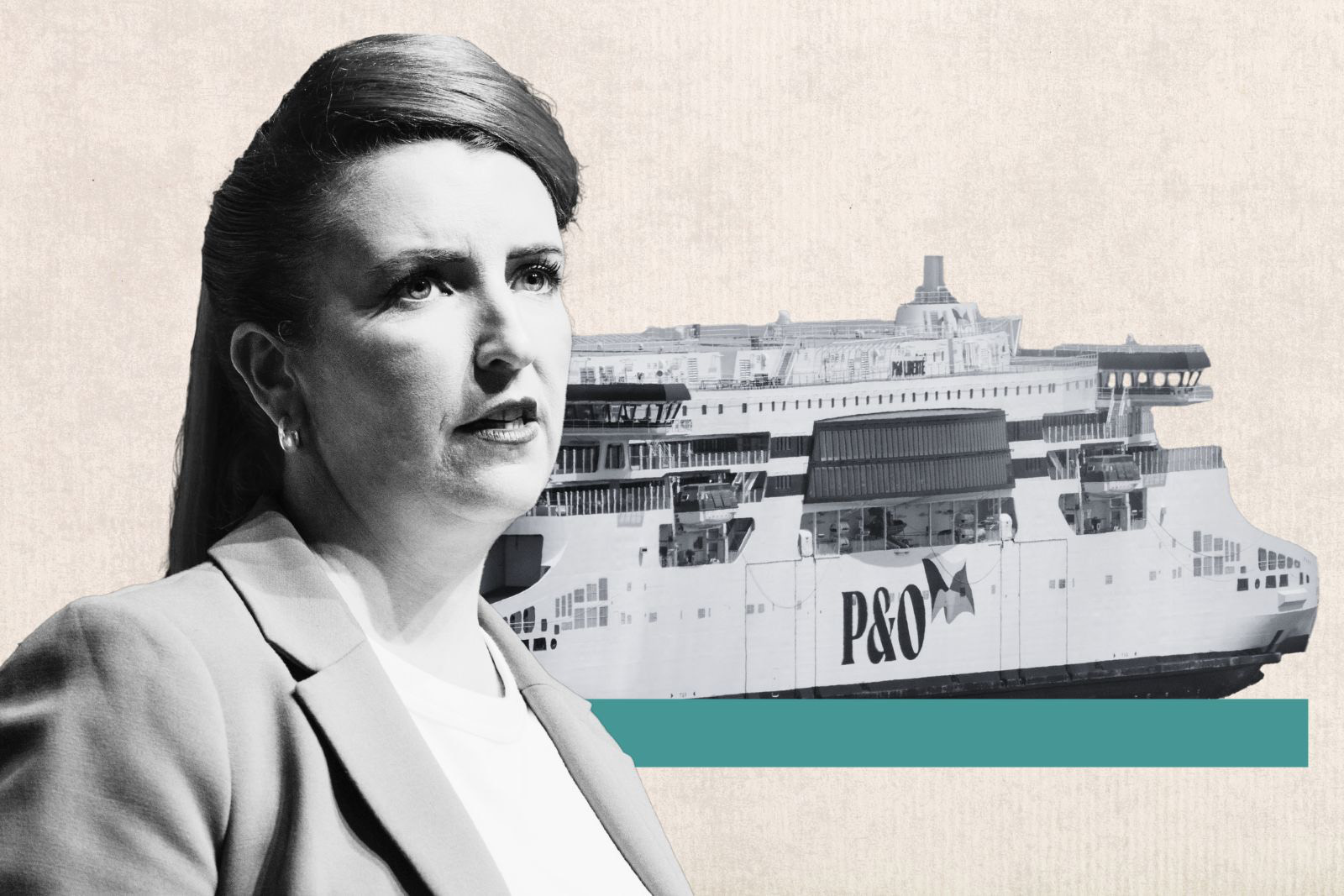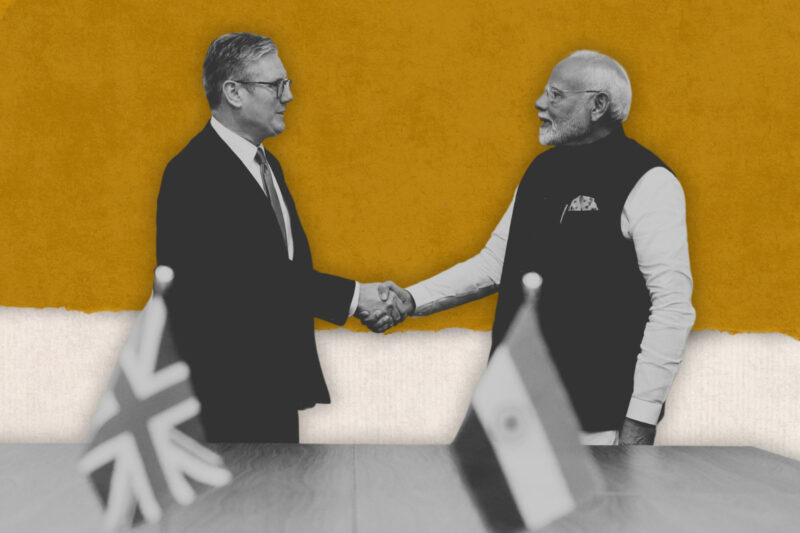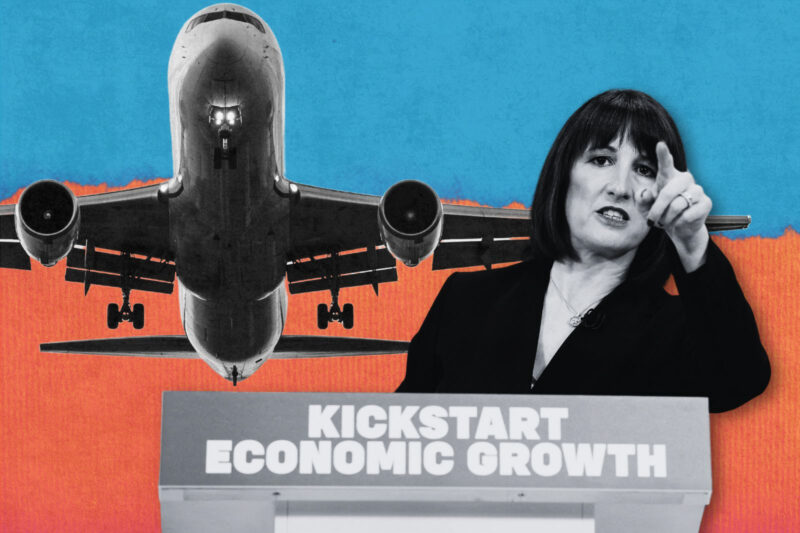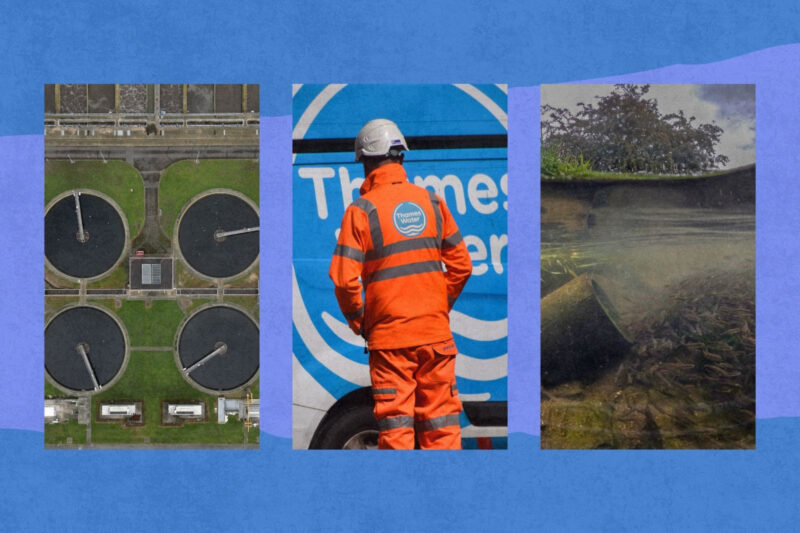Starmer’s P&O headache is over — but there are choppy seas ahead
Labour is backing both workers’ rights and big business. Are they on a collision course?

It was supposed to be an opportunity to reset the narrative for the government: 200 top business executives gathered in London’s historic Guildhall for a summit that would showcase the UK’s potential as a global investment hub.
Monday’s summit was particularly significant after Keir Starmer’s challenging first 100 days in office, marked by a change in his chief of staff and controversies over freebies — a crucial moment for the prime minister to demonstrate Labour’s commitment to long-term economic growth.
Taking the stage, Starmer said Labour had put an end to the “culture of chop and change” in government policies. His vision for growth hinged on attracting private sector investment, positioning the UK as a stable, attractive market.
But the run-up to the summit did not exactly go well. Just before the event, transport secretary Louise Haigh referred to shipping company P&O Ferries as a “rogue operator” during an interview with ITV News, in reference to its decision in 2022 to sack 800 staff and replace them with cheaper agency workers. Labour had frequently criticised P&O during its time in opposition and, only two years ago, the chancellor, Rachel Reeves, had called the company’s actions “disgraceful”.
In government, though, Labour has pledged to grow the economy through private sector investment, meaning it needs big business on side. Reports emerged that DP World, P&O’s parent company, had withdrawn its £1bn stake in the London Gateway port, unhappy with the minister’s remarks. The formal announcement of the investment was supposed to be a key part of the summit, so this was a problem. Downing Street sources hurriedly began to distance the government from Haigh’s comments, claiming they were her own personal views.
These views, of course, had been voiced by Labour frontbenchers before, and did not appear to have upset anyone until DP World got involved. ITV News was told that no concern had been raised privately within No 10 after Haigh’s interview; similar comments had actually featured in a government press release that was signed off by Downing Street.
Haigh’s remarks, though, had clearly caused offence to DP World — particularly her revelation that she had been boycotting the company and would “encourage consumers to do the same”. Sources in the Middle East, where DP World is based, told me this comment in particular had upset bosses at the firm, something they expressed when the government then reached out to DP World hoping to smooth things over.
Evidently whatever was said in the hurried private calls between the government and DP World worked, as the announcement of the investment went ahead as planned on Monday. The episode, however, made it clear how hard Labour is willing to work to ensure private cash comes in — even at the cost of undermining its own cabinet ministers.
Unsurprisingly, this manoeuvre didn’t sit well with everyone. A couple of Labour MPs I spoke to expressed frustration, believing the party should continue to challenge P&O’s practices, which the company itself has admitted were illegal. “We should stand up to them and continue to call them out,” one said, “not water things down because we want their money.”
This disgruntlement won’t be a surprise to the party leadership, given Labour’s historic status as the party of workers. For the government’s part, it does say it is offering “the biggest update to workers’ rights in a generation” through its employment bill, which seeks to end fire and rehire — ironically the very thing P&O did in 2022 — as well as cracking down on “exploitative zero-hour contracts” and giving workers entitlement to basic employment rights on the day they start a job.
And so, while unions have welcomed the move, some business leaders have not. The Federation of Small Businesses has described the bill as “clumsy, chaotic and poorly planned”, claiming it “lacks any real pro-growth element and will increase economic inactivity”.
Labour has promised it is both pro-business and pro-worker. The events of the last week will raise questions about how compatible these positions truly are. Starmer remains confident, arguing at the summit that enhanced workers’ rights are part of a “better growth model”. This does, however, reflect a broader challenge for Labour as it tries to reconcile its traditional role as a champion of workers with its desire to foster economic growth through the private sector.
Re-securing the DP World investment was considered a success by senior ministers, though Labour still has much to prove in its efforts to win over the business community. During a post-speech discussion, Eric Schmidt, former chief executive of Google, expressed “shock” at Labour’s strong focus on growth and urged Starmer to appoint a minister of “anti-regulation”, arguing that cutting red tape would bring even more investment into the country. This suggests that, while the business world is open to engaging with Labour, it is waiting to see if the party can truly deliver on its promise of growth led by the private sector.
As the summit concluded, ministers felt cautiously optimistic, celebrating the announcement of £60bn in investment — double the amount raised at the Conservatives’ summit the previous year. A total of 22 private sector investment projects were announced, ranging from private equity giant Blackstone investing £10bn in Northumberland for a new AI data centre, to Octopus Energy committing £2bn to renewable energy. Most of the Labour MPs I asked view this as a win that gives the party a much-needed sense of purpose and positivity.
With the budget just weeks away, this has been as much a lesson in political management as in securing investment. Starmer now faces the challenge of ensuring that promises he has made, both on workers’ rights and at this summit, become actionable policies to ensure the economic growth on which he has hinged his success.
Shehab Khan is an award-winning presenter and political correspondent for ITV News
 Newsletter
Newsletter













